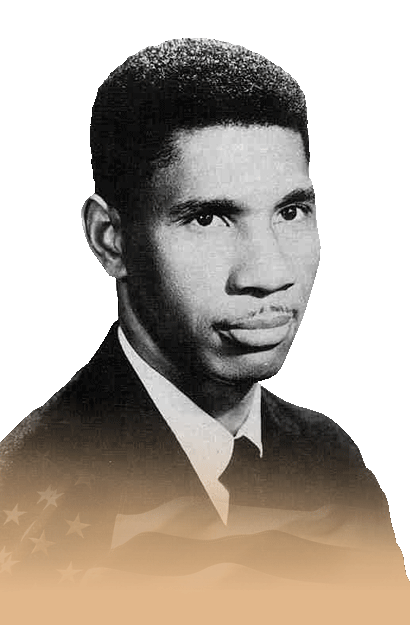 |
 |
 |
 |


| ||||||
|
As the first National Association for the Advancement of Colored People (NAACP) field secretary in Mississippi (1954-1963), Medgar Evers sacrificed his life while working to end racial violence and improve the quality of life for black Mississippians. Evers and his wife Myrlie established the NAACP office in Jackson, Mississippi in the mid-1950s. He tirelessly led marches, prayer vigils, voter registration drives and boycotts. As early as 1955, Evers' name appeared on a death list. Yet he persistently appealed to blacks and whites to work together for a peaceful solution to social problems. The eyes of the nation turned to Jackson in the early 1960s as Evers orchestrated a boycott of white merchants. Backed by federal troops, he also led efforts to help James Meredith integrate the University of Mississippi in 1962. When disgruntled racists hurled a firebomb into the Evers home in 1963, Myrlie Evers bravely put out the flames with a garden hose. Evers continued his work, but an assassin's bullet ended his life a few weeks later outside his home. Evers' brother Charles took up his work as the NAACP field secretary in Mississippi. In 1994 - 31 years and three trials later - Evers' killer, Byron De La Beckwith, was convicted and sentenced to life in prison. As the child of a Mississippi farmer, Medgar Evers experienced racism everyday. White children on school buses taunted him as he walked 12 miles each way to the ill-equipped school for black children. Friends became lynching victims. Evers joined the Army and served honorably in Germany and France during World War II. When he returned, he joined the NAACP after a mob of armed whites wouldn't let him enter the polls to vote. He enrolled in Alcorn College (1948-1952) and married fellow college student Myrlie Beasley in 1951. Over the next two years, Evers worked as an insurance salesman in Mound Bayou and organized NAACP chapters throughout the Mississippi Delta. Myrlie Evers, the couple's daughter, two sons and the nation continue to honor the slain activist's memory. A statue of Evers stands in Jackson, Mississippi and Medgar Evers College stands in Brooklyn, New York. |